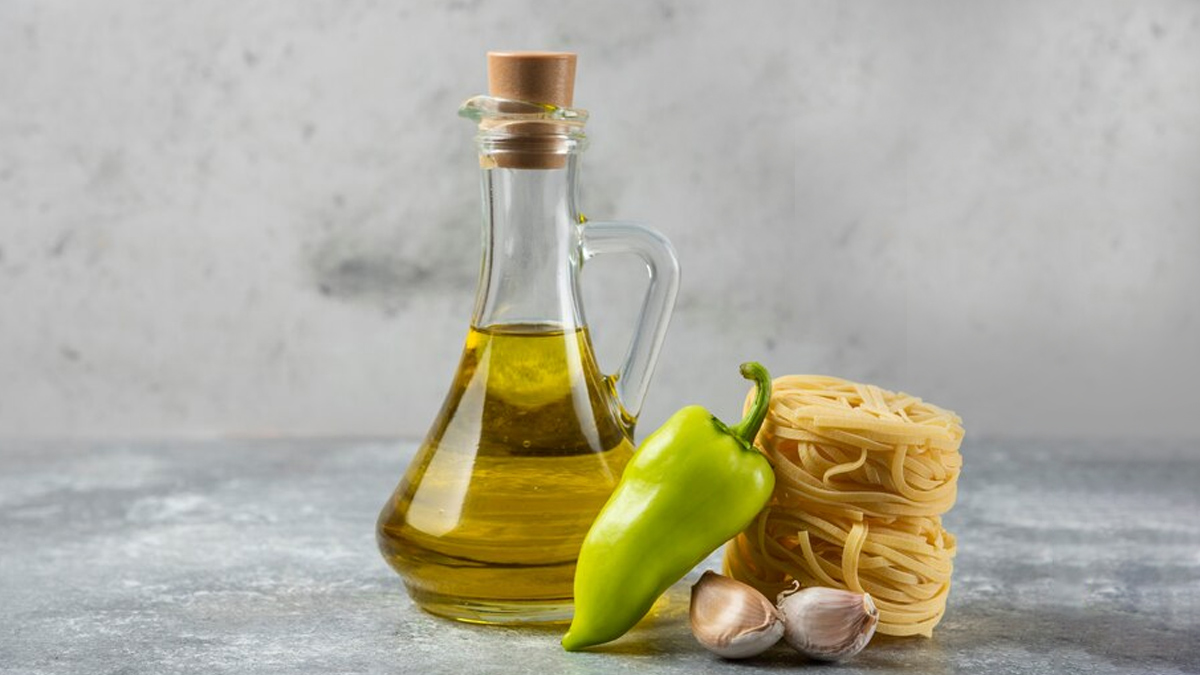
If being health-conscious and having healthy eating habits are one of your 2025 resolutions, then note that the right amount of oil in your diet should be on your priority list. While it may often remain a point of confusion, it is essential to know the basics that less is more when it comes to oil. It is an essential part of cooking and food preparation, however, not all oils are created equal, and their health impacts can vary significantly depending on quantity, type, and frequency of use.
Table of Content:-
To answer our queries, we spoke to Dr Shweta Jaiswal, Senior Dietician, Shardacare - Health City and here is what she shared with us but let’s understand the role of oil in your diet.
Role Of Oil In Your Diet
Oil is a source of fats, which are a necessary nutrient that your body uses for energy, to absorb vitamins, and to support cellular function. However, consuming too much oil, especially certain types, can lead to weight gain and an increased risk of chronic health conditions like heart disease and diabetes.

Also Read: Health Benefits Of Garlic Oil: How Does It Help You Prevent Infections
Dr Jaiswal suggested that the key is moderation and choosing the right kind of oils to meet your nutritional needs without exceeding daily calorie requirements. The right amount of oil, combined with the right type, can make a significant difference to your health.
How Much Oil Should You Use?
The American Heart Association (AHA) recommends that fats make up 25-35% of your total daily calories, with the majority coming from unsaturated fats (found in oils like olive oil, avocado oil, and certain vegetable oils). The specific amount will depend on factors like your age, gender, level of physical activity, and overall caloric intake.
“For a typical adult consuming a 2,000-calorie diet, this translates to about 5 to 7 teaspoons (25-35 grams) of oil per day. However, this includes all fat sources, not just oil, so it’s important to consider fats from other sources like nuts, seeds, dairy products, and meats,” Dr Jaiswal shared.
Choosing The Right Type Of Oil
Not all oils are created equal when it comes to health benefits. There are two main categories of fats: unsaturated fats and saturated fats. Explaining both, Dr Jaiswal shared that unsaturated fats are considered healthy fats and are found in oils like olive oil, canola oil, and avocado oil. On the other hand, saturated fats, found in oils like coconut oil and palm oil, are linked to higher levels of Low-Density Lipoprotein (LDL or bad) cholesterol and an increased risk of heart disease when consumed in excess.
Simply put, the key to maintaining a heart-healthy diet is focusing on oils rich in unsaturated fats while minimising the use of oils high in saturated fats.

Also Read: Does Castor Oil Really Make Your Eyelashes Grow Longer? Expert Debunks
Impact Of Using The Right Amount Of Oil On Your Health
Making small changes to the amount and type of oil you use can have profound impacts on your overall health.
- Weight management
- Improved heart health
- Improved digestion
- Better skin and hair
- Balanced hormones
Bottomline
The right amount of oil in your diet is not only about quantity but also about quality. Choosing oils rich in healthy unsaturated fats, using them in moderation, and making mindful adjustments to your cooking habits can support your health in multiple ways. Whether you’re looking to improve your heart health, manage your weight, or nourish your skin, making the simple change of carefully considering the oil you use can have lasting positive effects on your well-being.
Also watch this video
Read Next
Boost Your Morning: Expert Lists The Surprising Health Benefits Of Adding Coconut Oil To Your Coffee
How we keep this article up to date:
We work with experts and keep a close eye on the latest in health and wellness. Whenever there is a new research or helpful information, we update our articles with accurate and useful advice.
Current Version
